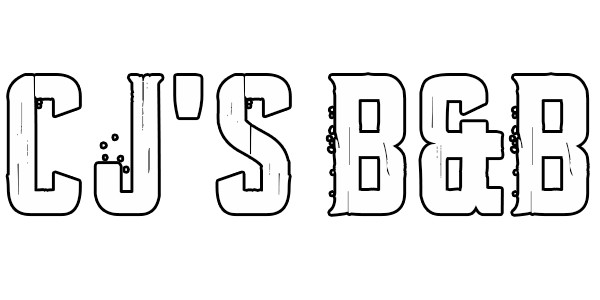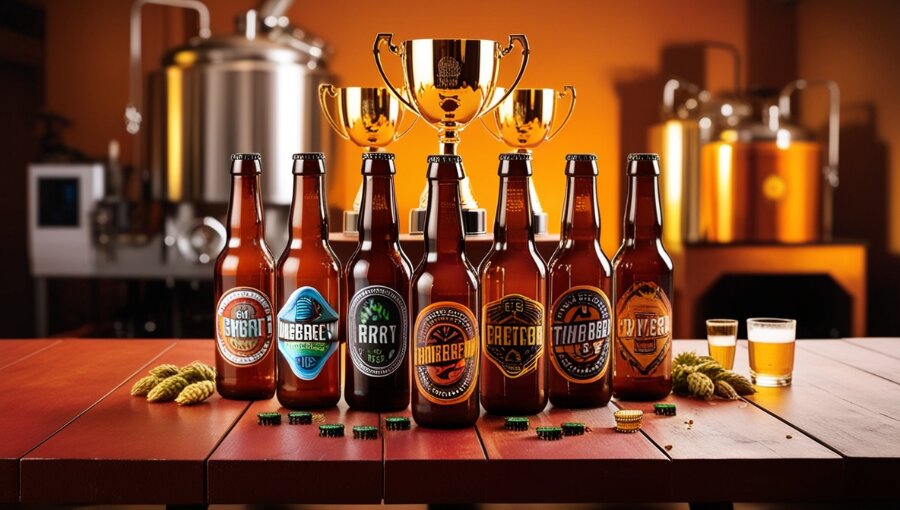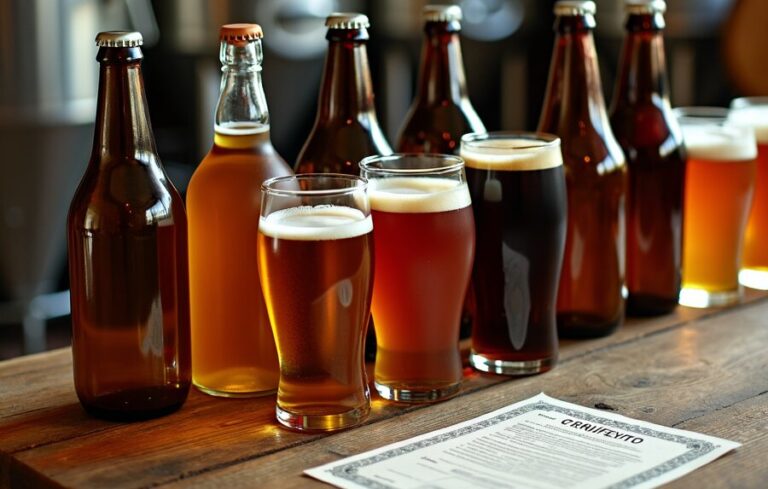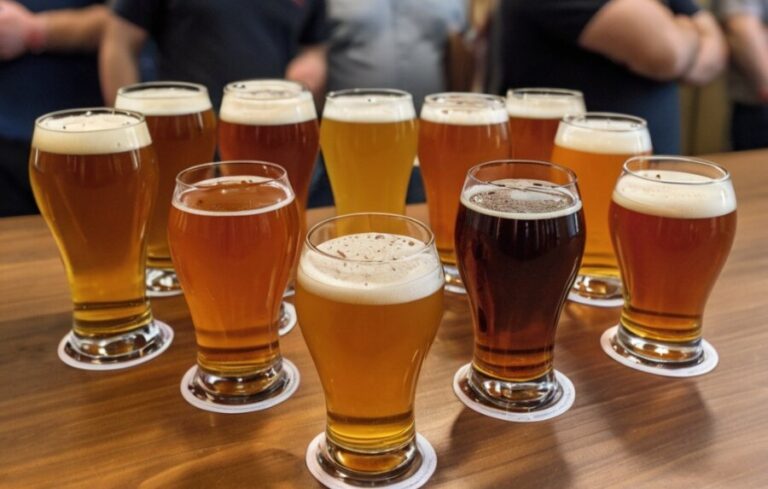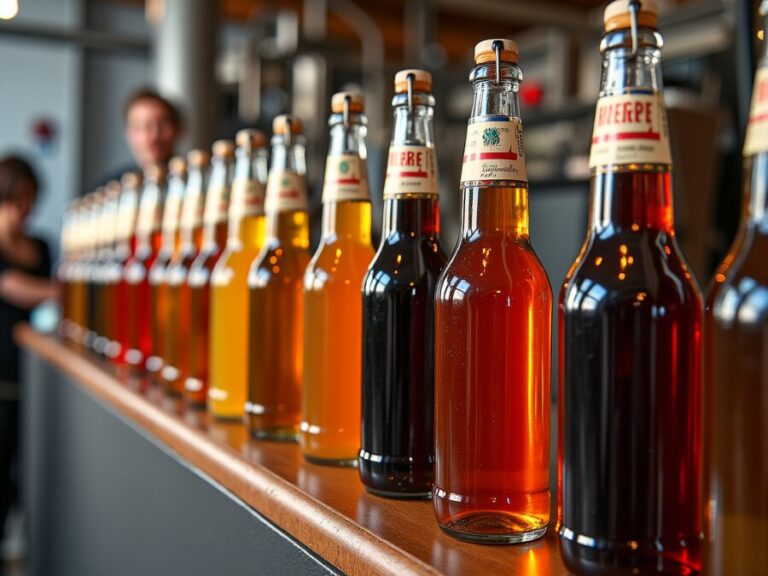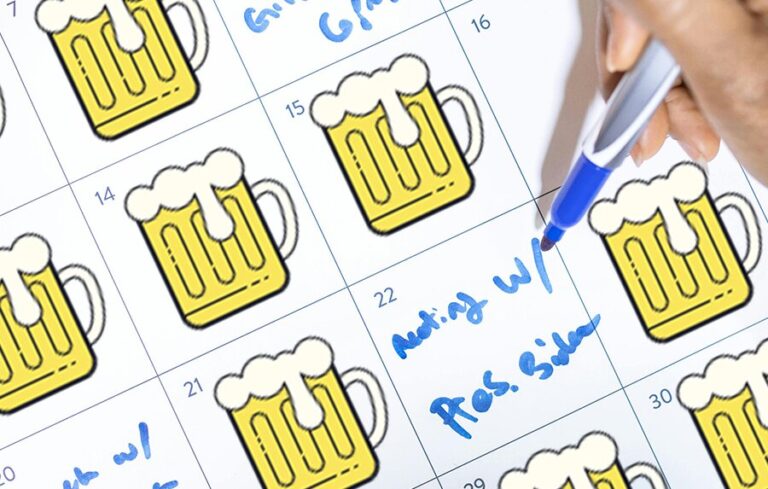Our evaluations and product assessments are conducted using a thorough and unbiased approach. Should you choose to buy any items through our provided links, we might receive a commission Read our disclosures.
Cracking the Code of Homebrew Competitions
If you’re like me and have a passion for homebrewing, getting the hang of homebrew competitions can really up your game. Let’s break down what you need to know about the World Beer Cup and the judging criteria that can help you snag those coveted homebrew competition awards.
The World Beer Cup: A Brewer’s Dream
The World Beer Cup is the big leagues of beer competitions, featuring the best brews in 110 categories and 172 different styles (World Beer Cup). This event is a huge deal, showcasing the creativity and skill of brewers from around the globe. Winning a medal here can skyrocket your reputation and open doors in both homebrewing and commercial brewing.
How Homebrew Competitions Judge Your Beer
Judging criteria are the secret sauce to how your homebrew gets evaluated. Judges look at five main categories: Aroma, Appearance, Flavour, Mouthfeel, and Overall Impression. Each beer gets scores and comments based on these aspects, usually judged in pairs to ensure a fair evaluation (American Homebrewers Association).
The Beer Judge Certification Program (BJCP) scoresheet is a common tool used in these competitions. It breaks down the scoring like this:
| Judging Criteria | Points Available |
|---|---|
| Aroma | 0-12 |
| Appearance | 0-3 |
| Flavour | 0-20 |
| Mouthfeel | 0-5 |
| Overall Impression | 0-10 |
Judges aim for their scores to be within 7 points of each other, though personal preferences can cause some variation (American Homebrewers Association).
Making the Most of Judges’ Feedback
The feedback you get from judges is gold. They often provide tips on how to improve your brewing techniques, covering things like specialty malt usage, mashing temperatures, fermentation practices, and yeast health. By taking this feedback, you can fine-tune your brewing process and boost your chances in future competitions.
So, if you’re serious about homebrewing, understanding these competitions and their judging criteria is a game-changer. Happy brewing!
Roles in Homebrew Competitions
Jumping into homebrew competitions is a blast! It’s a chance to show off your brewing chops and mingle with fellow beer lovers. But behind the scenes, a few key players keep everything running like a well-oiled machine. Let’s break down what the Judge Coordinator, Sponsorship Coordinator, and Cellar Organizer do to make these events a hit.
Judge Coordinator Responsibilities
The Judge Coordinator is the glue holding the judging process together. Here’s what they handle:
Recruiting Judges: Gotta have enough judges, especially those BJCP-certified ones. Think of them as the beer-tasting pros (American Homebrewers Association).
Creating Category Groupings: They group similar beers together so they’re judged fairly.
Assigning Judges: Matching judges to the right beer categories based on their know-how.
Designating Best of Show Judges: Picking the cream of the crop to decide the Best of Show (BOS) winner.
| Task | Responsibility |
|---|---|
| Recruit Judges | Find enough judges, including BJCP-certified ones |
| Create Flights | Group entries by category |
| Assign Judges | Match judges with appropriate flights |
| Designate BOS Judges | Select judges for the Best of Show |
Sponsorship Coordinator Duties
The Sponsorship Coordinator is the one who brings in the goodies. Here’s their game plan:
Finding Sponsors: They reach out to local businesses, breweries, and homebrew shops to get support.
Managing Sponsorship Deals: Sorting out what sponsors will provide, like prizes, gift cards, brewing gear, or equipment.
Advertising: Making sure sponsors get their shout-outs on the competition website and promo materials.
Engaging Hosting Breweries: Working with breweries that host the event, which can be a big deal (American Homebrewers Association).
| Task | Responsibility |
|---|---|
| Find Sponsors | Reach out to local businesses and breweries |
| Manage Deals | Coordinate what sponsors provide |
| Advertising | Ensure sponsors are promoted on the website |
| Engage Hosting Breweries | Work with breweries hosting the event |
Cellar Organization Role
The Cellar Organizer is the unsung hero, keeping all the entries in check. Here’s what they do:
Receiving Entries: Handling the logistics of getting beer entries, whether they’re shipped or dropped off.
Storing Entries: Keeping the beers in cold storage to maintain their quality until judging.
Labeling and Organizing: Making sure each entry is labeled and organized by category for easy access.
Assisting Judges: Helping judges by fetching entries during the judging process.
| Task | Responsibility |
|---|---|
| Receiving Entries | Manage logistics for incoming beers |
| Storing Entries | Maintain quality in cold storage |
| Labeling | Ensure all entries are correctly labeled |
| Assisting Judges | Support judges with entry retrieval |
These roles are just a taste of what goes into pulling off a successful homebrew competition. Each one adds to the overall experience, making it fun and fair for everyone involved. Want to get in on the action? Try searching homebrew competitions near me or brush up on homebrew competition rules to get ready. Cheers!

Software and Tools for Homebrew Competitions
When you’re diving into homebrew competitions, having the right software and tools can make all the difference. These resources streamline the entry process and help manage the competition smoothly.
Brew Competition Online Entry & Management
One of my go-to tools is Brew Competition Online Entry & Management. This software is a lifesaver for organizing and running a successful competition. It offers a platform where participants can sign up, get all the info they need, and submit their entries. The user-friendly interface makes registration a breeze, so I can focus more on brewing and judging.
| Feature | Description |
|---|---|
| Online Registration | Participants can sign up and submit entries from anywhere. |
| Entry Management | Keeps all entries organized in one place for easy access. |
| Reporting Tools | Generates reports for judges and event coordinators. |
If you’re looking to get involved in homebrew competitions, this software is a game changer.
Brewing Software for Competition Management
Besides entry management software, I also use brewing software designed specifically for competition management. These programs help with recipe formulation, tracking fermentation progress, and ensuring consistency across batches. With brewing software, I can manage my homebrew efficiently and tweak things based on feedback.
Some popular brewing software options include:
| Software | Features |
|---|---|
| BeerSmith | Recipe creation, inventory management, and brewing calculators. |
| Brewfather | Cloud-based software for recipe management and brew day planning. |
| ProMash | Comprehensive brewing software for recipe and inventory management. |
These tools not only help me create the best possible brew but also prepare me for the judging process. Understanding homebrew competition rules and using insights from my brewing software can significantly boost my chances of winning those coveted homebrew competition awards.
In short, using the right software and tools can elevate your homebrew competition experience. From managing entries to perfecting your brew, these resources provide the support you need to succeed. Don’t forget to check out our homebrew competition tips for more insights on improving your competition skills!
Brewery Success in Competitions
Big Friendly Brewery Achievements
Nothing beats a good success story, especially in the homebrew scene. Take Big Friendly Brewery in Oklahoma City, for example. These folks are on fire! In 2022, they snagged two gold medals and the title of 251–500 Barrels Brewery of the Year at the Great American Beer Festival. But they didn’t stop there. In 2023, they decided to hand-deliver their beer entries to Denver. Smart move! They walked away with two more gold medals and their second Brewery of the Year award in a row. Talk about dedication paying off (Brewing Industry Guide).
| Year | Awards Won | Special Recognition |
|---|---|---|
| 2022 | 2 Gold Medals | 251–500 Barrels Brewery of the Year |
| 2023 | 2 Gold Medals | 2nd Consecutive Brewery of the Year |
Factors Influencing Brewery Competition Participation
Entering homebrew competitions isn’t just about bragging rights; it’s a serious investment of time and money. Many breweries are getting picky about which competitions to enter, thanks to tighter budgets. Here’s what they usually consider:
- Judges’ Feedback: Some breweries crave constructive criticism to fine-tune their brews.
- Industry Respect: Winning awards from big-name competitions can boost a brewery’s reputation.
- Local Appeal: Competitions that matter to local drinkers can be more rewarding.
Breweries also look at the return on investment (ROI) for entering these contests. It’s all about picking events that match their brand and goals. Big Friendly Brewery, for example, found the Great American Beer Festival to be a goldmine (literally and figuratively).
| Consideration | Importance Level (1-5) |
|---|---|
| Judges’ Feedback | 4 |
| Industry Respect | 5 |
| Local Appeal | 4 |
| Cost (Financial and Logistical) | 3 |
| Overall Payoff | 5 |
Choosing the right competitions can make or break a brewery’s success. It’s a balancing act between relevance, costs, and potential benefits. For more tips on navigating the competition scene, check out our articles on homebrew competition rules and homebrew competition tips.
Feedback and Improvement in Homebrew Competitions
Why Judges’ Feedback Matters
Jumping into homebrew competitions, I’ve realized how crucial judges’ feedback is. When I enter these contests, I get scoresheets that break down my brews, helping me spot flaws and areas to tweak. For example, judges might flag issues like oxidation or suggest tweaks in specialty malt usage, mashing temperatures, and yeast health (American Homebrewers Association).
This feedback isn’t just a critique; it’s a game plan for getting better. By digging into the judges’ comments, I can make strategic changes to up my beer game. Here’s a quick rundown of common feedback areas and why they matter:
| Feedback Area | Why It Matters |
|---|---|
| Specialty Malt Usage | Shapes flavour and aroma |
| Mashing Temperatures | Affects body and sweetness |
| Fermentation | Influences overall profile and clarity |
| Yeast Health | Key for proper fermentation |
Putting Judges’ Tips to Work
Once I get the judges’ feedback, the real work begins—implementing their tips into my brewing process. These insights can lead to big improvements in future batches. Remember, perfecting a recipe takes time and effort. I often re-enter my homebrew into another competition to see if the changes hit the mark.
To keep track of my progress, I log the feedback, the tweaks I made, and the results in later competitions. This habit keeps me organized and shows my brewing journey in black and white. Each round of feedback and improvement gets me closer to snagging those coveted homebrew competition awards.
For anyone wanting to dive deeper into the competition scene, tools like homebrew competition software can be a lifesaver for managing entries and tracking feedback. Also, check out homebrew competition tips to boost your chances of success in future contests.
Homebrew Competition Logistics
Pulling off a homebrew competition isn’t just about the beer; it’s about nailing the details. From picking the perfect spot to locking in sponsors and mapping out every minute, each piece is crucial to making sure the event goes off without a hitch.
Picking the Perfect Spot
Finding the right venue is a game-changer for any homebrew competition. Breweries usually hit the sweet spot because they offer:
- Plenty of room for judges and participants
- Tables for judging
- Cold storage for all those beer entries
- The ability to handle shipped or dropped-off entries
Craft breweries are a top pick since they often have food for judges and staff, plus some killer beer for calibration. This sets a chill vibe that makes the whole event more enjoyable. Curious about local competitions? Try searching homebrew competitions near me.
The Power of Sponsorship
Sponsorship can take your homebrew competition from good to great. Sponsors often chip in with:
- Prizes and gift cards
- Brewing materials or equipment
- Advertising on the competition website
Local businesses, homebrew stores, and breweries usually love getting involved. Hosting breweries are especially valuable, providing the venue and boosting the competition with resources and visibility. For more on rules and sponsorship, see our guide on homebrew competition rules.
| Type of Sponsorship | Benefits |
|---|---|
| Prizes | Motivates participants and rewards winners |
| Brewing Materials | Helps competitors with supplies |
| Advertising | Boosts visibility for the competition and sponsors |
Mapping Out the Event
A solid timeline is your best friend when planning a homebrew competition. Here’s how I usually break it down:
| Timeline Phase | Tasks |
|---|---|
| 3-4 Months Before | Lock in the venue, reach out to sponsors, set the dates |
| 1-2 Months Before | Open registration, promote the event, finalize judging criteria |
| 1 Week Before | Confirm judges, make sure all materials are ready, check logistics |
| Day of Competition | Set up the venue, register participants, conduct judging |
| 1 Week After | Announce winners, hand out prizes, gather feedback |
Planning ahead keeps everything on track and ensures nothing gets missed. For tips on making the most of your participation, visit our page on homebrew competition tips.
By focusing on these key elements, you can make sure your homebrew competition not only draws in participants but also runs smoothly and successfully.

